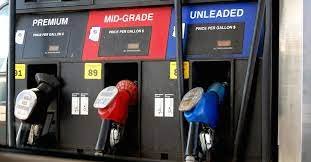People are often familiar with regular car maintenance, but they are often unfamiliar with deep matters like the suitable gasoline for the car. The latest versions of cars keep entertaining customers, and people try to get their hands on these latest models. However, modified car models need extra care and attention to maintain good shape and form.
Gasoline provides energy to the vehicle. People prefer premium quality gas refills for their cars which is why they prefer pumps supplying products from big names like Enigma Energy. This oil and gas supply industry has made its name for providing high-quality products. However, selecting the right type of gas for a car is equally important. Having said that, people are unaware of different types of gasoline and do not know which gas is suitable for their car model.
Regular gas and premium gas are the two most common types offered in gas stations. If you are not familiar with the names or want to know which one is suitable for your vehicle, this article will provide all the details you are looking for.
The Difference Between Premium And Regular Gasoline
The major difference between both types is their octane rating. Premium gas has an octane rating of 91 and more, depending on the state. Every state has different octane ratings, but 91-93 are the most common octane ratings. The octane level of the gas that is equal to 87 is referred to as regular gasoline. Whereas gas with octane level 89 is often called mid-grade gasoline.
Now that you know the difference, how to identify the different types of gasoline at the gas station? If you notice on the meter board, the octane level for each type of gas is written on the stickers stuck on the meter board.
Why Do Car Owners Focus On Using The Right Gas?
Getting premium gas does not mean your car will perform at an optimal level. If your car doesn’t need premium gas, you are not doing any good to your vehicle by getting it. Some vehicles specifically require premium gas because the car requires it for advanced functions to work properly. If you fill regular gas in such cars, the specific car functions will not work properly.
What Happens If You Use The Wrong Gas?
In old times, filling a car with the wrong type of gas made it start making knocking sounds soon after leaving the station. However, today, it doesn’t make any difference. If you fill the car with regular gas with a low octane rating instead of a premium one, the engine control unit adjusts the time and performance as per the regular fuel. So, it is fine to refill the car with regular fuel if the premium one is not available. However, extending the period of using cheap fuel should be avoided.
How To Choose Between Premium And Regular Gas?
There are different factors to keep notice of in order to choose the right gas. If you have a high-performance car or your car comes with a turbocharged engine, premium gas is the right choice for your car. Apart from that, select the oil change on the basis of the weight and age of the car. If you have a heavy car, truck, or SUV and it makes knocking sounds, try premium gas and keep noticing if it still makes sounds or not.
When Do People Need To Use Premium Gas?
The type of gas your car requires is written on the car manual, along with other details. The type of fuel required is written on the sticker on the fuel door as well. If the sticker says premium fuel is recommended, it means using regular fuel is safe as well. You just have to keep noticing if your car makes knocking sounds. If it does, shift to premium fuel for a few shifts.
Having said that, the sticker says, “premium fuel required” you can only use premium fuel for the car.
Can You Get Better Mileage With Premium Gas?
The answer is a simple no. It depends on the car model. If your car requires premium fuel only, then you should use premium oil. Otherwise, there is no benefit in paying extra when you will get no additional benefit for the extra money.
Final Word
In all, the type of gas people use for cars matters a lot for its better performance. Read the car manual or check the sticker on the car fuel door to identify which gas your car needs for efficient performance.



